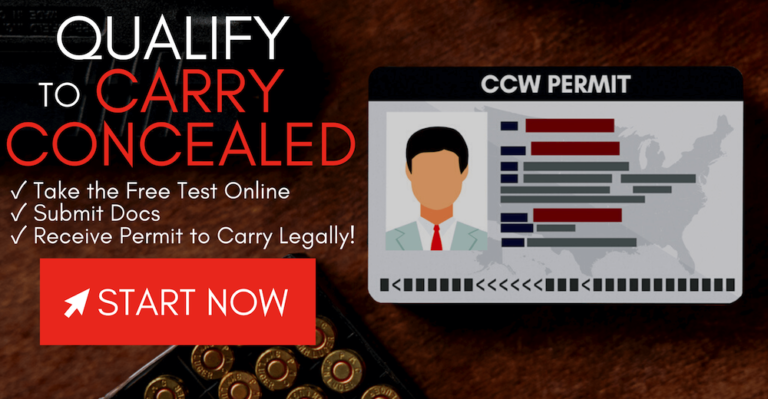Well it’s official, we’ve made it to 2023! From all of us at Concealed Coalition, Happy New Year!
The start of the year is always a special time full of new beginnings – and those fun things called “New Year’s Resolutions” that everyone loves so much. While many people may make well-intentioned resolutions that start off strong, studies have shown that 23% of people quit their resolutions about two weeks into the new year, and only about 19% of people stick around for the long haul.
Whether your resolution involves training to live more defensively, switching up your diet to be a bit healthier, or anything in between, we want to help you achieve those goals in 2023. So in honor of the new year (and the official start of National Resolution Week!) we’ve gathered up some of the best tips to help you keep your resolutions.

The Foundations for a Resolution
Let’s start off with the basics: resolutions are typically positive changes that you want to turn into habits in your life.
A habit is defined as a tendency to do something, whether harmful or health-promoting (obviously here we’re going for those more health-promoting habits). They start out as changes you consciously make in your daily routine. Without attention, these changes may die out, but if you stick with them, you’ll become less and less aware of them over time until they are almost instinctual.
Sounds simple, right? In theory, but in practice, it may take longer than you think. According to the European Journal of Social Psychology, the amount of time it took to form a habit ranged from 18-254 days, with the median time being 66 days.
Unfortunately, this time commitment is what causes many people to fall off track with turning their routines into habits that ultimately accomplish their resolutions. So what can you do to try to avoid this in your own life?
Tips for Crushing Your Resolutions This Year
Be clear about what you want.
While lofty goals are great, they’re sometimes intimidating and can lead to an inability to follow through. Think of standing at the bottom of a huge mountain and looking all the way to the peak you want to reach – it seems like an almost unattainable accomplishment, right?
Luckily there are some easy ways to resolve this roadblock. First off, clearly define your goal. Using the SMART system (Specific, Measurable, Achievable, Relevant, Timely) can help you set realistic expectations for what you want to accomplish.
Second, start small. Figure out how you can break up your larger goal into more manageable, measurable, bite-size tasks. For example, if you want to improve your overall physical fitness, start by doing a few jumping jacks or squats a day and build up every day from there. Alternatively, if your goal is to improve your firearm or defensive living skills, maybe you resolve to go to the range x number of times per week, or set aside 30 minutes to an hour a day to learn more about topics like situational awareness or home and family defense.
If we’re keeping with the mountain analogy from before, these smaller tasks will serve as your checkpoints on your way up to the summit. They’ll give you mini accomplishments that you can be proud of as your work towards your overall goal.

Reward Yourself.
Speaking of accomplishments, don’t forget to reward yourself along the way. Habit formation works well with positive reinforcement, so stop to acknowledge your progress every so often in a way that works for you. Maybe you finally get that new tactical light you’ve been wanting, or spring for those running shoes you’ve had your eye on.
Rewards don’t always have to be material though. You can also build intrinsic motivation, which will help reinforce your habits as well:
- Tell friends and family about your goal, allowing them to help you stay accountable and celebrate with you when you reach milestones.
- Make a spreadsheet or journal to document your progress or new skills learned. Look back at it every so often to see how far you’ve come in your journey.
- Try to figure out how to make your path to your mini accomplishments more fun or interesting, so they’re more enjoyable and less of a burden.
Prepare For and Navigate Obstacles.
Every path to a goal worth achieving will have its roadblocks, so it’s important to be prepared for these obstacles. Part of this preparation involves flexibility. You don’t have to wake up at 5am every day to train if this action isn’t sustainable for you in the long run (of course, if it is, more power to you!). Do what will work best for you and your daily life/style of learning.
You can also avoid obstacles by being proactive. For example, if part of your goal involves getting out to the range and training a certain number of times per week, maybe pack your range bag the night before you’re scheduled to go and leave it by the door. That way you’ll be less tempted to brush off a range trip by saying “Oh, I have to get all my gear together! I’ll do it later.”
However, if and when you do hit a roadblock, don’t beat yourself up too badly. Instead, evaluate what caused the slip-up and. Figure out what you need to do to get back on track and avoid this pitfall in the future, and you’ll be back on the path to success in no time.
If learning how to better protect what matters most is one of your resolutions in 2023, look no further than Concealed Coalition University. We’ve got an entire library of defensive living content that can be at your fingertips to help you become a guardian always and a warrior when needed.
Sources: New York Times, BetterUp, Inc., Forbes, CNN




